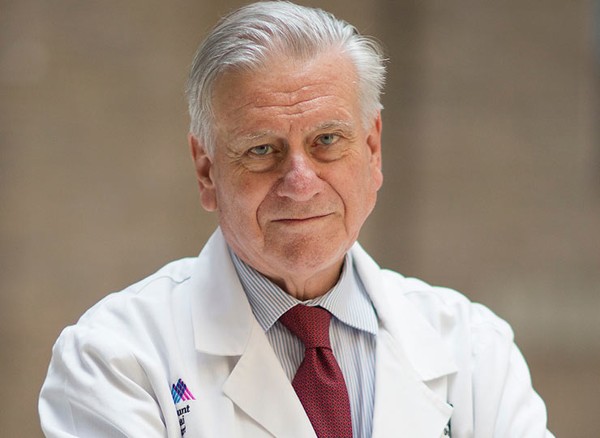
Why men who improve their marriages live longer – it lowers their blood pressure
Men whose marriages strengthen over the years are healthier than those in decaying relationships. Also in the news, obesity is linked to many cancers, and skipping or eating a poor breakfast may be bad news for your arteries
Men whose marriages grow stronger over the years have healthier cholesterol and blood pressure than peers whose unions fall apart, says a study that hints at unexpected health perks of relationship counselling.
Researchers asked more than 600 men with children in Britain to rate the quality of their marriage at two points in time – when their child was three, and when they were nine.
The men could describe their union as consistently good, consistently bad, improving, or deteriorating.
Lessons in love: how a Hong Kong marriage school can teach couples to live happily ever after
Twelve years later, the team measured the participants’ health, analysing measures as blood pressure, resting heart rate, weight, cholesterol, and blood sugar – potential risk factors for cardiovascular disease.
Men who had described their marriages as “improving” had better cholesterol readings and a healthier weight years later, the team found.

“Deteriorating” unions, on the other hand, “were associated with worsening diastolic blood pressure.”
Little change was noted for men who had reported being in a consistently good or consistently bad marriage, says the team, and speculated this may be due to habituation to their situation.
The researchers warned their study, published on Monday in the Journal of Epidemiology & Community Health, was merely observational and could not show conclusively that an improving marriage results in improving health.
Tearful Hong Kong wife pleads for new heart to save her husband
But assuming this was the case, “then marriage counselling for couples with deteriorating relationships may have added benefits in terms of physical health over and above psychological well-being”, say the authors.
Given that the men were still relatively young when taking part in the study, it is too early to know how their relative health risks noted would translate into actual disease.
Previous research had already shown married men to have a lower risk, on average, for cardiovascular disease such as heart attack or stroke.
Weight problems linked to many cancers
About 40 per cent of all cancers in the United States – more than 630,000 in all – are associated with excess weight, say health officials, urging a renewed focus on prevention.
In a nation where 71 per cent of adults are either overweight or obese, the findings by the US Centres for Disease Control and Prevention “are a cause for concern”, says the agency’s director, Brenda Fitzgerald.

“A majority of American adults weigh more than recommended – and being overweight or obese puts people at higher risk for a number of cancers,” she says. “By getting to and keeping a healthy weight, we all can play a role in cancer prevention.”
Doctors warn Hong Kong diabetics to keep a close eye on heart health

The rates of these overweight- and obesity-related cancers are rising, in contrast to the overall rate of new cancer cases, which has dropped since the 1990s.
Colorectal cancer was the only weight-associated cancer that decreased between 2005 and 2014 – falling 23 per cent, due in large part to screening, according to the report. (In Hong Kong, in 2015, 2,073 deaths were caused by colorectal cancer, accounting for 14.5 per cent of all cancer deaths.)
With one in five Hongkongers overweight, government urged to implement WHO call to tax all soft drinks
Women were particularly susceptible, with 55 per cent of all cancers diagnosed in women associated with weight, compared to 24 per cent of those diagnosed in men.

Hong Kong’s Centre for Health Protection’s latest estimates, based on its Behavioural Risk Factor Survey from April 2016, show 38.8 per cent of the population aged 18 to 64 were classified as overweight or obese. A higher proportion of men (48.2 per cent) than women (30.5 per cent) were classified as overweight or obese.
Don’t skip breakfast – it could save your life
People who skip breakfast or eat poorly to start the day are twice as likely to develop hardened arteries, which can lead to deadly heart disease, researchers say.
Results of a study published in the Journal of the American College of Cardiology uncovered signs of damage to the arteries long before symptoms or disease developed.
Researchers say their findings could offer an important tool in the fight against cardiovascular disease, the world’s top killer, which took 17.7 million lives in 2015, according to the World Health Organisation.

“People who regularly skip breakfast likely have an overall unhealthy lifestyle,” says study author Valentin Fuster, director of Mount Sinai Heart, a health care group in New York, and editor-in-chief of the Journal of the American College of Cardiology.
What’s the healthiest breakfast?
“This study provides evidence that this is one bad habit people can proactively change to reduce their risk for heart disease.”

The report was based on 4,000 middle-aged office workers in Spain. Participants were followed for six years.
Most people in the study – 70 per cent – ate a low-energy breakfast that gave them five to 20 per cent of their daily calorie intake.
Three per cent said they skipped breakfast altogether or ate very little. This group “tended to have more generally unhealthy eating habits and a higher prevalence of cardiovascular risk factors”, says the report.
People who skipped breakfast also “had the greatest waist circumference, body mass index, blood pressure, blood lipids and fasting glucose levels”, it says.

Researchers found that people who ate less than five per cent of their recommended daily calories at breakfast had, on average, double the amount of fatty build-up in the arteries as people who ate a high-energy breakfast.
Is breakfast really the most important meal? Scientists sort fact from myth

Previous studies have shown that eating a healthy breakfast is linked to good health, including a lower body weight, healthy diet, and lower risk of problems with cholesterol, blood pressure and diabetes.
Skipping breakfast has also previously been shown to raise the risk of coronary artery disease.
Prakash Deedwania, professor of medicine at the University of California, San Francisco and author of an accompanying editorial in the journal, says: “Although breakfast skippers are generally attempting to lose weight, they often end up eating more and unhealthy foods later in the day.”

.png?itok=arIb17P0)